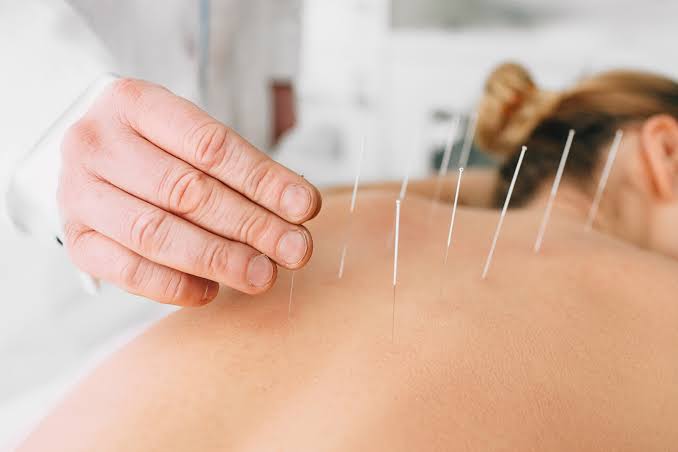A recent pilot study concludes that a person’s need for opioids after surgery may be decreased by using acupuncture before surgery. The researchers based in Detroit claim that acupuncture is a low-cost, safe approach that in some individuals reduces pain and anxiety.

The opioid epidemic in the United States took the lives of 47,000 people in 2018, and prescription opioids were involved in about a third of those deaths.
In 2018 , two thirds of drug overdose deaths included opioids, according to the Centers for Disease Control and Prevention ( CDC). A 2018 Substance Abuse and Mental Health Services Administration (SAMHSA) study estimates that opioids have been misused by 10.3 million people in the U.S. aged 12 or older in the past year.
Opioids are a category of medication that includes heroin, the illicit drug, and fentanyl, the prescription drug. Oxycodone, hydrocodone, morphine, and codeine are other prescription medications.
About 80 percent of individuals receive a prescription for opioids following low-risk surgery, according to a 2017 paper. Oxycodone or hydrocodone, which are the most popular culprits of opioid overdose deaths, constitute nearly 87 percent of these prescriptions.
Doctors also use these opioids in hospital settings and, after they leave the hospital, prescribe them to individuals.
In 2020, researchers found that opioid-related overdoses due to incomplete death records were 28 percent higher than reported.
Compared with the general U.S. population, veterans are twice as likely to die from an accidental overdose. One research found that the number of veterans who died from an overdose of opioids rose from 2010 to 2016 by 65 percent.
There is an immediate need to minimize opioid usage before or after surgery in light of this opioid crisis.
Alternative methods
In a recent pilot study, before a group of veterans underwent surgery, a team of researchers tested the effectiveness of two separate acupuncture techniques: frontline acupuncture and conventional acupuncture.
At the Anesthesiology 2020 annual meeting in Chicago , IL, on October 5, they reported their findings.
Two studies were performed by the researchers. In the first, participants were split into two groups of 21 veterans because of hip replacement surgery.
Prior to their surgery, the first group received traditional acupuncture, and the second group received sham acupuncture. Sham acupuncture, or acupuncture with a placebo, mimics acupuncture.
People in the control group needed an average of 56 of morphine milligram equivalent (MME) in the first 24 hours after surgery. MME is a method of calculating the cumulative intake of any opioid medication by a patient over 24 hours.
Those who had traditional acupuncture received an average of only 20.4 MME in comparison. Nearly two-thirds less than the group in control.
The veterans who underwent traditional acupuncture also reported greater satisfaction 24 hours post-surgery with their pain management.
Those who had acupuncture indicated less pain after scoring their care satisfaction on a scale of 1-10. Although this was not statistically significant, they also experienced 15% less anxiety than the control group.
Traditional versus battlefield
28 veterans scheduled for general surgery procedures received battlefield acupuncture in the second experiment. Thirty-six participants received placebo acupuncture in the control group.
Battlefield acupuncture involves inserting ear acupuncture needles. For about 3–4 days, the needles remain in the ear. This technique targets ear points that clinicians think might interfere with how pain in the central nervous system is perceived by the body.
During the 1950s, a French doctor, Paul Nogier, popularized ear acupuncture. It became recognized as battlefield acupuncture in 2001 after Richard C. Niemtzow, a U.S. The Air Force radiation oncologist modified the ear acupuncture procedure to provide immediate pain relief on the battlefield.
The veterans who received this acupuncture technique required half as many opioids in the first 24 hours after the surgery as the control group (17.4 MME versus 35 MME). At a median of 8 versus 6 in the control group, they also reported lower scores.
Although 38 percent of control group participants experienced nausea and vomiting after surgery, these symptoms were recorded by just 3 percent of those who had undergone battlefield acupuncture.
Traditional medicine proponents claim that ear acupuncture points impact the trigger points in the stomach, gall, bladder, and small intestines and decrease nausea and vomiting.
Speaking with the American Society of Anesthesiologists, Brinda Kish, lead author of the study and an anesthesiology resident at Detroit Medical Center, MI, said:
“Some patients were open to trying acupuncture right away, and others became more interested when they learned more about the risks of opioid use. It’s easy, patients love it, it’s not just another medicine, and it’s very safe. Because battlefield acupuncture was developed by an armed services doctor, veterans also were more willing to participate.”
It is important to remember that this study has not been peer-reviewed yet, although the findings are interesting. In addition , the research is limited, so scientists would need to perform much larger trials before reaching a firm conclusion about the efficacy of acupuncture.







